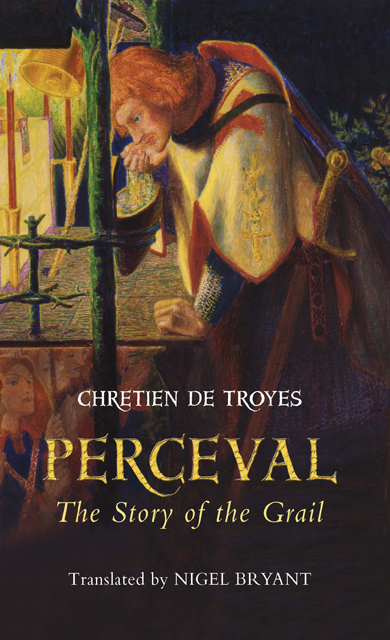CHRÉTIEN DE TROYES
Published online by Cambridge University Press: 18 March 2023
Summary
HE LITTLE REAPS WHO LITTLE sows, and a man who wants to reap some harvest spreads his seed in such a place that God repays a hundredfold; for on worthless ground good seed will thirst and fail.
Chrétien now sows and lays the seed of a romance that he begins, and sows it in so good a place that he cannot fail to have great reward; for he is doing it for the worthiest man in Christendom : Count Philip of Flanders , who is of even greater worth than the mightily esteemed Alexander. I shall prove that the count is worth a good deal more than he, for Alexander had amassed within him all the vices and all the evils of which the count is clean and safe. The count will not tolerate base jokes or spiteful words, and hates to hear ill spoken of any man, whoever he may be. The count loves justice, and loyalty and holy church, and despises all baseness; and he is more generous than any man known: he gives according to the Gospel, without hypocrisy or guile, for it says: ‘Do not let your left hand know the good your right hand does’. But the receiver knows, and so does God, who sees all the secrets and knows all the thoughts hidden deep within men's hearts and bowels. And why does the Gospel say ‘Hide from your left hand your good deeds’? The left, according to the scriptures, signifies the vainglory that comes from false hypocrisy. And what does the right signify? Charity; which does not boast of its good works but does them covertly, so that they are secret save to the one whose names are God and Charity. For God is Charity; and the man who lives in charity according to the scriptures, Saint Paul says, and I say to him, he lives in God, and God in him. So know this, in all truthfulness: those gifts that good Count Philip gives are gifts of charity, for he is prompted only by his fair and generous heart, which bids him do good. Is this man not of greater worth than Alexander, who did not care about charity or other good deeds? He is indeed, and never doubt it.
So Chrétien's toils will not be vain in striving, by the count's command, to put into rhyme the finest tale ever told in a royal court: it is the story of the Grail, of which the count gave him the book. Hear how he acquits himself.
- Type
- Chapter
- Information
- PercevalThe Story of the Grail, pp. 1 - 106Publisher: Boydell & BrewerPrint publication year: 2006

